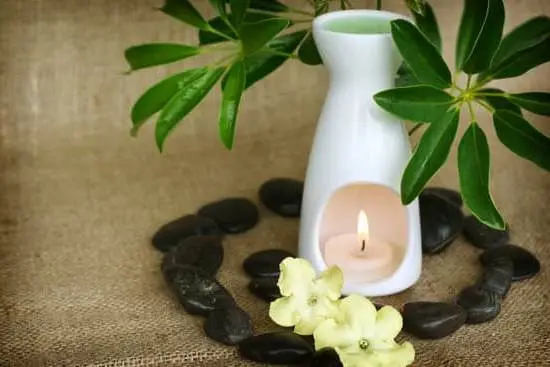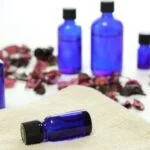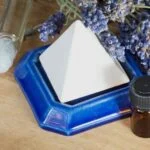The demand for aromatherapy courses in London has been steadily increasing, making it a popular choice among students seeking holistic healing techniques. In this blog post, we will explore the rising popularity of aromatherapy courses and why they have gained such recognition in recent years.
Aromatherapy is a powerful holistic healing technique that utilizes essential oils extracted from plants to promote physical, mental, and emotional well-being. It has become increasingly popular as people seek natural alternatives to traditional medicine. Aromatherapy can be used in various ways, including through essential oils, massage, and inhalation.
Choosing accredited aromatherapy courses in London is of utmost importance to ensure high-quality education and professional recognition. Accreditation provides students with the assurance that they are receiving comprehensive training from qualified instructors. Additionally, obtaining certifications from accredited programs opens up numerous career opportunities in the field of aromatherapy.
In the next sections of this blog post, we will delve deeper into the benefits of aromatherapy as a holistic healing technique, discuss the significance of accreditation when choosing an aromatherapy course, and highlight some of the top colleges in London offering these courses. We will also explore key factors to consider when evaluating an aromatherapy college and share inspiring success stories of alumni making a difference in this industry.
Stay tuned for valuable insights on career opportunities and future prospects for graduates with aromatherapy qualifications, and learn how to choose the right course that fits your goals and aspirations.
Exploring Aromatherapy as a Powerful Holistic Healing Technique
Aromatherapy is a holistic healing technique that has gained significant popularity in recent years, especially in London. This therapy utilizes essential oils extracted from plants to promote physical, mental, and emotional well-being. The practice of aromatherapy involves the use of these oils through various methods such as massage, inhalation, and even ingestion in some cases.
One of the key benefits of aromatherapy is its ability to address multiple aspects of wellness. Physically, certain essential oils have properties that can help relieve pain, reduce inflammation, and support overall health. Mentally and emotionally, aromatherapy has been found to have a positive impact on mood and stress levels. In fact, certain scents like lavender and chamomile are known for their calming effects.
The use of essential oils is at the core of aromatherapy. These oils are highly concentrated extracts from different parts of plants such as leaves, flowers, or even tree bark. Each oil possesses unique therapeutic qualities attributed to its chemical composition. Some common essential oils include lavender for relaxation, peppermint for energy boost, and eucalyptus for respiratory relief.
To engage in aromatherapy practices effectively and safely, individuals must undergo proper training from accredited courses. These courses provide comprehensive knowledge about the science behind aromatherapy as well as practical skills needed to apply it in a professional setting. Accredited courses ensure that students receive high-quality education that meets industry standards while also opening up professional recognition and career opportunities.
The Importance of Accredited Aromatherapy Courses
Accreditation plays a crucial role in ensuring the quality and credibility of aromatherapy courses in London. When choosing an aromatherapy course, it is important to select one that is accredited by recognized and reputable accrediting bodies. Accreditation guarantees that the course meets certain standards of excellence, providing students with a high-quality education and opening up professional opportunities.
One of the main advantages of attending an accredited aromatherapy course is the assurance of receiving a comprehensive and well-rounded education. Accreditation ensures that the curriculum covers all essential aspects of aromatherapy, including theory, practical skills, safety protocols, and ethical considerations. Students can be confident that they are gaining the necessary knowledge and skills to become competent professionals in the field.
Accredited aromatherapy courses also enhance students’ professional recognition. Graduating from an accredited program demonstrates that individuals have met rigorous standards set by industry experts and professionals. This recognition can be beneficial when seeking employment or starting their own practice as clients are more likely to trust professionals who have completed a recognized program.
In addition to professional recognition, accreditation also opens up various career opportunities for aromatherapy graduates. Many employers specifically seek out candidates who have completed accredited programs as it indicates their level of competency and commitment to their field. Moreover, some careers may require certification or licensure which may only be obtained through completion of an accredited program.
| Accrediting Bodies | Description |
|---|---|
| International Federation of Aromatherapists (IFA) | The IFA is a leading accrediting body in the field of aromatherapy, setting high standards for education and practice. |
| Aromatherapy Council (AC) | The AC is a regulatory body for aromatherapy in the UK, ensuring that practitioners meet their standards of knowledge and practice. |
| Complementary and Natural Healthcare Council (CNHC) | The CNHC is an independent regulator of complementary healthcare professions in the UK. |
Top Aromatherapy Colleges in London
Aromatherapy is a growing field of study and practice, with an increasing number of students choosing to pursue courses in London. Whether one is new to the field or looking to advance their knowledge and skills, there are several top aromatherapy colleges in London that offer a range of course offerings and specializations.
One such college is the London School of Aromatherapy, which offers a comprehensive diploma program in aromatherapy. Students enrolled in this program learn about the history and principles of aromatherapy, as well as how to blend and use essential oils safely and effectively. In addition to the foundational courses, students also have the opportunity to specialize in areas such as beauty therapy or clinical aromatherapy.
Another reputable college offering aromatherapy courses is the College of Naturopathic Medicine (CNM). CNM provides a Diploma in Aromatherapy that covers not only the practical aspects of using essential oils but also delves into the science behind aromatherapy. Students will gain a deep understanding of how different oils interact with the body and mind, allowing them to tailor treatments specifically for each client.
For those interested in studying at a university level, Middlesex University offers a Bachelor’s degree in Complementary Healthcare with an emphasis on clinical aromatherapy. This program combines theory and hands-on experience, equipping students with advanced knowledge and skills required for professional practice.
| College | Course Offerings | Specializations |
|---|---|---|
| London School of Aromatherapy | Diploma Program | – Beauty Therapy – Clinical Aromatherapy |
| College of Naturopathic Medicine (CNM) | Diploma in Aromatherapy | N/A |
| Middlesex University | Bachelor’s degree in Complementary Healthcare (with emphasis on clinical aromatherapy) | N/A |
Experienced Faculty and Practical Training
Experienced Faculty: Experts in the Field of Aromatherapy
When choosing an aromatherapy college, one of the key factors to consider is the expertise and experience of the faculty members. Aromatherapy is a specialized field that requires in-depth knowledge and practical skills, and having experienced faculty can greatly enhance the learning experience.
Importance of Expertise
Having faculty members who are experts in the field of aromatherapy allows students to learn from their extensive knowledge and experience. These experts have a deep understanding of essential oils, their properties, and their therapeutic uses. They can provide valuable insights into blending techniques, proper dilution methods, and safety precautions.
Furthermore, experienced faculty members often bring real-world examples and case studies into the classroom, allowing students to learn from practical situations. They can share their own experiences working with clients and discuss different approaches to specific conditions or ailments. This firsthand knowledge enhances students’ understanding of aromatherapy as a holistic healing technique.
Benefits of Practical Training
Practical training is another crucial aspect that potential aromatherapy students should consider when choosing a college. The hands-on experience gained through practical training allows students to apply theoretical concepts and develop their skills in a supervised environment.
Reputable colleges often offer practical workshops where students can practice different massage techniques using essential oils, create custom blends for specific purposes, and learn how to assess clients’ needs effectively. This experiential learning helps to build confidence and prepares students for their future careers as aromatherapists.
Moreover, practical training provides opportunities for direct interaction with instructors who can provide immediate feedback and guidance. This personal attention ensures that students are correctly applying techniques and understanding best practices in aromatherapy.
Evaluating Faculty Members and Practical Training
When evaluating an aromatherapy college’s faculty members, prospective students can research their qualifications and expertise. Look for faculty members who hold certifications in aromatherapy or related fields, such as herbalism or holistic health. Additionally, consider their experience in clinical practice or working with clients.
To assess the practical training aspect of a college, inquire about the opportunities available for hands-on learning. Are there workshops or practicum components included in the curriculum? How many hours are dedicated to practical training? Asking these questions can help determine if the college prioritizes experiential learning.
Visiting the college, if possible, and speaking with current students or alumni can also provide valuable insights into the quality of faculty members and practical training offered. Hearing firsthand experiences can give potential students a better understanding of what to expect from their education at a particular institution.
By considering experienced faculty members and practical training opportunities, prospective students can choose an aromatherapy college that provides them with the knowledge and skills needed to succeed in this growing field.
Student Success Stories
Aromatherapy courses in London have empowered many students to make a difference in the world of holistic healing. The success stories of alumni from aromatherapy colleges serve as inspiring examples of how these courses can lead to fulfilling careers and impactful contributions to the industry.
One such success story is that of Emma Thompson, an alumna of London Aromatherapy College. After completing her aromatherapy course, Emma went on to establish her own wellness center specializing in aromatherapy massage and essential oil blending. Her expertise in creating customized treatment plans for clients with various health concerns has earned her a reputation as a trusted practitioner in the field.
Another notable alumnus is James Davis, who graduated from the Aromatic Studies Institute in London. James’s passion for sustainability led him to combine his knowledge of aromatherapy with environmental consciousness. He now runs a successful eco-friendly skincare line that incorporates sustainably sourced essential oils. His dedication to promoting ethical practices has made his brand popular among conscious consumers.
These success stories highlight the diverse opportunities available to graduates of aromatherapy courses in London. Whether it is starting their own businesses, working within established wellness centers, or venturing into product development, alumni are making a tangible impact on people’s well-being and quality of life.
It is important to note that these success stories are not isolated incidents but represent a larger trend in the industry. Aromatherapy college graduates are becoming sought-after professionals due to their deep understanding of essential oils and their ability to provide personalized care to clients. With an increasing demand for natural therapies, their skills are valued by spas, wellness centers, and healthcare facilities alike.
The success stories also serve as motivation for current students pursuing aromatherapy courses. They illustrate the potential career paths and highlight how individuals can find fulfillment and make a positive impact by turning their passion for aromatherapy into a profession.
Overall, student success stories from aromatherapy college alumni in London demonstrate the transformative power of these courses. They are a testament to the value of acquiring knowledge and skills in aromatherapy and how it can open doors to rewarding careers in holistic healing.
Career Opportunities and Future Outlook for Aromatherapy Graduates
Aromatherapy has gained immense popularity in recent years, not only as a holistic healing technique, but also as a promising career path for individuals passionate about natural health and wellness. As more people seek alternative forms of treatment and strive for overall well-being, the demand for qualified aromatherapists has been steadily increasing. This section explores the career opportunities and future outlook for aromatherapy graduates in London.
Aromatherapy graduates have a wide range of career paths to choose from. They can find employment in various sectors, including spas, wellness centers, healthcare facilities, beauty salons, and even in their own private practices. One of the advantages of becoming an aromatherapist is the versatility of skills acquired during the course. Graduates have the opportunity to work with clients who have different needs – from those seeking relaxation and stress relief to others looking for pain management or skincare solutions.
The future outlook for aromatherapy professionals is highly favorable. With the growing interest in natural and holistic therapies, there is an increased demand for qualified experts in this field. Aromatherapists can expect to find job opportunities not only in London but also worldwide. In addition to working with individual clients, they may also collaborate with other healthcare practitioners such as naturopaths, massage therapists, or yoga instructors to provide comprehensive holistic care.
Moreover, as awareness about natural remedies continues to grow, there are opportunities for aromatherapy graduates to contribute to research and development within the industry. They can explore creating their own line of essential oils or blending techniques based on their expertise. Furthermore, some may choose to pursue teaching roles at colleges or universities offering aromatherapy courses or become authors sharing their knowledge through books or online platforms.
How to Choose the Right Aromatherapy Course in London
Choosing the right aromatherapy course in London is a crucial step in embarking on a rewarding career in this field. With the abundance of options available, it is essential to consider certain factors to ensure that you make an informed decision. By carefully evaluating these factors, you can find a course that aligns with your personal goals, learning style, and career aspirations.
One important factor to consider is the curriculum offered by the aromatherapy college. Look for courses that provide comprehensive training in all aspects of aromatherapy, including essential oils, massage techniques, and inhalation methods. A well-rounded curriculum will equip you with the knowledge and skills needed to succeed as an aromatherapist.
Additionally, consider the duration and format of the course. Some students may prefer shorter certification courses for a quick entry into the field, while others may opt for more extensive diploma programs for a deeper understanding of aromatherapy. Determine which option best suits your needs and availability.
Cost is another vital factor to keep in mind when choosing an aromatherapy course. While it is important to find a program that fits within your budget, be cautious of excessively low-priced courses as they may lack quality or accreditation. Additionally, inquire about any additional costs such as materials or practical training fees.
Lastly, consider the location of the college. Opting for a college located conveniently within London can save you time and expenses associated with commuting. However, if there are no suitable options within London itself, explore colleges located nearby with good reputations.
By considering these factors and conducting thorough research on various aromatherapy colleges in London, you can make an informed decision about which course will best suit your needs and help you achieve your career goals in this growing industry. Remember to take your time in evaluating each option before making a final decision – ultimately choosing a course that feels like the right fit for you will set you on the path toward success as an aromatherapist.
Frequently Asked Questions
How do I become a certified aromatherapist UK?
To become a certified aromatherapist in the UK, you can start by researching and enrolling in recognized courses or training programs. Look for courses that are accredited by reputable organizations such as the International Federation of Professional Aromatherapists (IFPA) or the Complementary Therapists Accredited Association (CTAA). These courses typically cover topics like essential oils, their properties, blending techniques, and client consultation skills.
It is advisable to choose a course that meets the National Occupational Standards for Aromatherapy in order to ensure you receive comprehensive and standardized training. After completing your training, you will need to accumulate a specified number of practice hours before applying for certification with a professional association. Each association may have specific requirements, so it’s worth exploring their guidelines thoroughly.
Is there a demand for aromatherapists?
Yes, there is a demand for qualified aromatherapists in various settings. As more people seek alternative therapies and natural remedies for health and wellness purposes, the popularity and acceptance of aromatherapy have grown significantly. Aromatherapists can find employment opportunities in spas, wellness centers, hospitals, rehabilitation clinics, yoga studios, and even cruise ships.
Additionally, some aromatherapists choose to set up their own private practices or offer mobile services to provide individualized treatments based on clients’ needs. Building a strong reputation through professionalism and expertise can help create a steady stream of clients who appreciate the benefits of aromatherapy.
What qualifications do you need to practice aromatherapy?
In order to practice aromatherapy professionally, it is important to obtain relevant qualifications recognized by industry associations or regulators. While requirements may vary depending on the country or region you are in, it is generally recommended to hold a Level 3 diploma or equivalent in Aromatherapy from an accredited institution. Some qualifications that are often accepted include diplomas from awarding bodies regulated by Ofqual (Office of Qualifications and Examinations Regulation), such as City & Guilds or VTCT (Vocational Training Charitable Trust).
These qualifications cover essential aspects of aromatherapy, including anatomy and physiology, client assessment, contraindications, aromatherapy techniques, and safety practices. Additionally, it is important to continually engage in professional development by attending workshops, conferences, or advanced courses to enhance your skills and stay updated with the latest research and developments in the field.

Are you looking for a natural way to improve your health and wellbeing?
If so, aromatherapy may be the answer for you.





